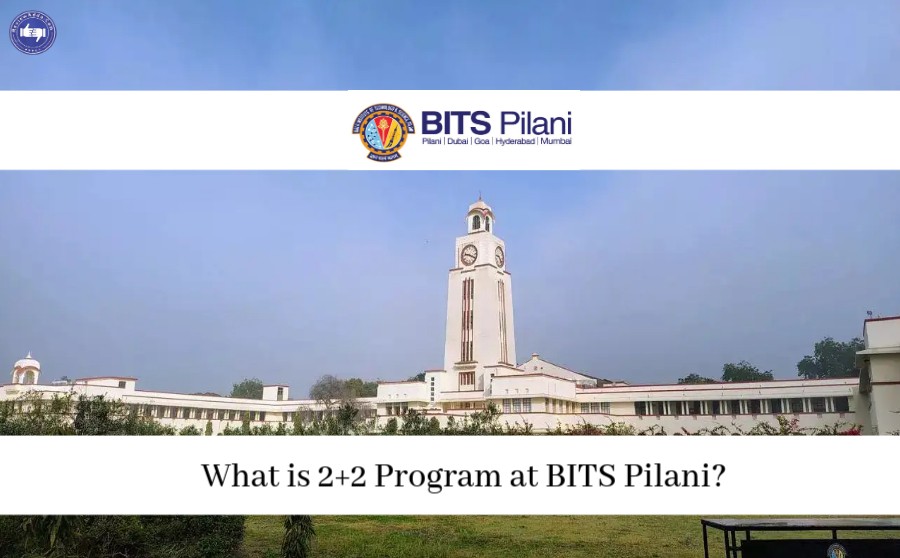NUS vs NTU Singapore
Singapore is one of the most popular study abroad locations for students, and it is placed 13 in the QS Rankings for Best Student Cities 2023. Its rich culture, economic surroundings, and atmosphere draw students from all over the world to study here.
When considering higher education in Singapore, two universities undoubtedly stand out. In the QS World University Rankings®, the National University of Singapore (NUS) and Nanyang Technological University (NTU) are routinely ranked within the top 15. In these rankings, these two universities are frequently neck and neck, highlighting their great academic position on the global stage.
NUS is the highest ranked Singaporean university this year, by one spot. NUS is ranked 11th, whereas NTU is ranked 12th. With minimal academic difference between the two, it's worth delving a little further when comparing these two colleges.
Here is a curated comparison list of two of Singapore's finest universities: Nanyang Technological University (NTU) and National University Singapore (NUS).
NUS vs. NTU: A Comprehensive Comparison
Singapore has a reputation for having an excellent education system, with the National University of Singapore (NUS) and Nanyang Technological University (NTU) at the forefront. These two colleges have routinely ranked among the best universities in the world. Choosing the best university for your higher education path necessitates a full awareness of the differences and similarities among these elite schools.
In this blog, we delve deep into the realm of NUS and NTU, offering a comprehensive comparison to empower you with the knowledge needed to make an informed decision.
1. Overview
NUS, or the National University of Singapore, is located in the city's southwest district, near to Kent Ridge on a 150-hectare campus. Both of these colleges have made their mark on the international stage, ranking among the top 20 Best colleges. NUS, on the other hand, has maintained its lead over NTU in nearly every category except engineering.
Being the #1 institution in Asia and #11 in the World is no simple task for any institution, but this prestigious university established itself among the giants via its commitment to the future of its students. Have a look on both the universities individually.
National University of Singapore (NUS)
The National institution of Singapore is a Singapore-based national public institution. Renowned rating publications have named NUS one of the world's finest institutions. For the past five years, QS has regularly rated NUS 11th. As a result, it is one of the greatest universities in Asia.
Annually, NUS attracts tens of thousands of students seeking higher education. In 2022, the university boasted an enrollment of 31.8K undergraduate and 12.1K graduate students. Among this diverse student body, a notable 25 percent are international students pursuing their academic journeys at the National University of Singapore. Notably, NUS maintains a remarkable level of selectivity in its admission process, with an acceptance rate as low as 5 percent.
The National University of Singapore has three campuses in Singapore: Kent Ridge, Bukit Timah, and Outram, with 13 undergraduate and four graduate schools on each site. Students can apply to any of the 68 undergraduate and 220 postgraduate programmes offered by the NUS. Singapore's National institution is a multidisciplinary research institution with 30 research institutes and centres.
Nanyang Technological University (NTU)
Nanyang Technological University (NTU) is located near the lovely town of Jurong West, which is located in Singapore's western area. Its enormous site, encompassing around 200 hectares, establishes it as the city's largest university campus. NTU has a well-deserved reputation as one of the world's leading engineering and technology universities. It stands out as a top choice for students interested in engineering and related courses due to its superb professors and cutting-edge research facilities. If you are interested in this topic, NTU may be the ideal academic place for you.
Nanyang Technological University (NTU) is a well-known Singaporean university that was formed in 1991. The university is ranked number 19 in the QS World University Rankings 2023 and number 36 in the THE World Rankings. The university's motto is "A Great University Rises."
NTU has 70 undergraduate and 110 postgraduate programmes. NTU has a total student population of 33,000 and 11,000 overseas students. It has 220,000 alumni all around the world. More than 5,000 staff and faculties, 13 colleges, and 23 schools have contributed to making NTU a modern-day giant in the field of education and research! The acceptance rate for NTU is approximately 15%.
The foundation of NTU is an inclusive culture that values diversity, inclusiveness, and equitable learning opportunities. Its network of like-minded people who can support one another regardless of where they are has made the globe a much better place to live.
2. Reputation and Rankings:
NUS and NTU both enjoy excellent reputations in academia and industry, making Singapore a coveted destination for international students. While their rankings can fluctuate from year to year, NUS traditionally has a slight edge in global rankings. NUS is often ranked higher in the QS World University Rankings and the Times Higher Education World University Rankings. However, both institutions have their unique strengths and are well-regarded for different programs.
|
NUS vs NTU in the QS World University Rankings by Subject 2021 |
||
|
|
NUS |
NTU |
|
Accounting & finance |
13th |
25th |
|
Agriculture & Forestry |
-- |
65th |
|
Anatomy & physiology |
=21st |
-- |
|
Anthropology |
14th |
-- |
|
Architecture |
6th |
=46th |
|
Art & design |
28th |
43rd |
|
Biological sciences |
17th |
=33rd |
|
Business & management |
12th |
20th |
|
Chemistry |
7th |
8th |
|
Communication & media studies |
21st |
6th |
|
Computer science & information systems |
4th |
12th |
|
Earth & marine sciences |
|
51-100 |
|
Economics |
17th |
=45th |
|
Education & training |
|
9th |
|
Engineering (chemical) |
3rd |
6th |
|
Engineering (civil) |
2nd |
=7th |
|
Engineering (electrical) |
5th |
4th |
|
Engineering (mechanical) |
9th |
5th |
|
Engineering (petroleum) |
1st |
-- |
|
English language & literature |
=29th |
69th |
|
Environmental sciences |
11th |
13th |
|
Geography |
5th |
-- |
|
Geology |
-- |
51-100 |
|
Geophysics |
-- |
51-100 |
|
History |
=15th |
51-100 |
|
Hospitality |
-- |
=27th |
|
Law |
10th |
101-150 |
|
Library & Information science |
-- |
18th |
|
Linguistics |
=17th |
=31 |
|
Materials science |
=5th |
1st |
|
Mathematics |
9th |
31st |
|
Medicine |
24th |
=89th |
|
Modern languages |
16th |
=62nd |
|
Nursing |
23rd |
-- |
|
Performing arts |
40th |
-- |
|
Pharmacy |
12th |
-- |
|
Philosophy |
=46th |
101-150 |
|
Physics & astronomy |
15th |
20th |
|
Politics |
=10th |
31st |
|
Psychology |
=16th |
27th |
|
Sports-related subjects |
=41st |
32nd |
|
Social policy & administration |
4th |
51-100 |
|
Sociology |
6th |
61st |
|
Statistics |
8th |
41st |
3. Academics:
National University of Singapore (NUS):
- NUS provides undergraduate, postgraduate, and doctorate programmes.
- It is well-known for its expertise in business, law, medicine, engineering, and computer science.
- NUS also provides a broader range of liberal arts programmes and a significant emphasis on research.
Nanyang Technological University (NTU):
- NTU is well-known for its engineering and science programmes, and it is routinely ranked among the best institutions in these subjects worldwide.
- Business, communication, and the arts and humanities are also strong at the institution.
- When deciding between NUS and NTU, your choice should align with your academic interests and career goals. Research the specific programs that interest you to determine which university is the better fit.
4. Campus and Facilities:
NUS:
- NUS has a large and vibrant campus, spanning Kent Ridge, Bukit Timah, Duke-NUS, and Yale-NUS.
- The campus boasts state-of-the-art facilities, libraries, research centers, and recreational spaces.
- The university is known for its beautiful greenery and modern architecture.
NTU:
- NTU's campus is known for its futuristic design, with striking buildings and cutting-edge facilities.
- The campus includes a comprehensive sports and recreational complex, making it a hub for sports enthusiasts.
- It is located on the western side of Singapore, offering a different atmosphere compared to NUS.
5. Research Opportunities:
Both NUS and NTU are committed to research excellence and offer various opportunities for students to engage in research. However, NUS typically has a more extensive network of research centers and institutes due to its longer history and larger size. It's important to investigate the specific research areas and faculty members in your field of interest at both universities to determine the best fit for your research ambitions.
NUS Campus Placement Support
Here are some career development tools and activities offered by NUS B-school:
- Various on-campus recruiting events and industry panel discussions provide a close-up look at certain businesses, sectors, and business areas. During these events, students may expand their network and gain a better grasp of what recruiters look for when recruiting new employees.
- Networking: The NUS Business School provides several routes for creating a broad network of connections in Singapore, Asia, and beyond.
- MBA Resume Book is an NUS product that features student resumes and provides global recruiters and prominent businesses with simple access to our enormous pool of NUS MBA talent.
- Platform Powered by AI and Online Career Resources: These tools provide students with rapid feedback, allowing them to improve their abilities such as resumes and elevator pitches.
- Employment Directory: Various job opportunities are listed on NUS Business School's proprietary online recruiting system on a regular basis. This method is now available to newly enrolled students as well as alumni.
- Internships: Internships provide students with the opportunity to obtain firsthand knowledge of a certain organisation or sector. It is also an excellent chance for prospective advancement to full-time positions. Internships are often available from May until late July. International students may also participate in the internship programmes without requiring any particular work authorization.
- Career Workshops: Across departments and schools, a diverse selection of professional workshops are conducted, ranging from industry-specific interview clinics and assessment centre simulations to personal branding sessions.
- Career Coaching and Alumni Mentoring: Students are assisted through self-assessment exercises, market research, and cover letter and resume preparation by their personally assigned career coach. Students often collaborate extensively with allocated alumni mentors in their field of interest to expand their industry expertise and build a network.
|
Job Offer Received |
86% |
|
Average Duration to Get Placed |
Within 3 months of graduation |
|
Average Base Salary |
USD 77109 (INR 6421101) |
Campus Placement Support offered at NTU
NTU does not have traditional placement cell services. However, the University arranges job fairs.It has an NTU Career & Attachment Office (CAO), an NBS Career Services Office (CSO), and a Graduate Studies Career Development Office (GSCDO) where students may get career guidance, industry-specific consultations, mentorships, networking opportunities, and so on.
According to the Nanyang Business School (NBS) Career Development Report, the GSCDO assists students with 1-on-1 career coaching, employer engagement experts, and career seminars.
Placement Highlights at NTU
|
Head |
Data |
|
Total Students |
37,900 |
|
Percentage of students in Labour Force who are employed |
93% |
|
Mean Salary |
$49,167 |
|
Median Salary |
$48,292 |
|
Highest Average Salary (Bachelor's Degree in Business and a Bachelor's Degree in Computer Engineering/Computing) |
$79,000 (Mean Value) |
|
Highest Employment Percentage |
|
|
Industrial Research Partners and Recruiters |
L'Oreal, Alibaba Group, Siemens Pte Ltd., BMW, LightLab Sweden AB, KPMG, Rolls-Royce, Deloitte, EY, Barclays, Lockheed Martin amongst others |
|
International Academic Partners |
CEA: French Alternative Energies and Atomic Energy Commission, Carnegie Mellon University, Cornell University, University of California, Berkeley, etc. |
6. Tuition Fees:
Tuition fees can vary depending on your nationality, program of study, and other factors. Singaporean citizens enjoy significantly lower tuition rates than international students. Both universities offer a range of scholarships and financial aid packages, so it's important to explore your options and determine which institution is more likely to provide the financial support you need.
Tuition prices at NUS and NTU vary based on your course, tuition classification (Singaporean citizen, permanent resident, or overseas student), and if you are eligible for a MOE Tuition Grant.
The Singaporean Ministry of Education (MOE) offers these awards to both domestic and international students, and they can assist pay a portion of your tuition expenses (for a full-time diploma or undergraduate programme). In exchange, overseas students must commit to work for a Singaporean firm for at least three years following graduation (or five or six years if studying medicine or dentistry).
If you don’t have a MOE Grant, international undergraduate students can expect to pay between S$32,250 and S$39,050 (~£15,950 to £20,870) for most courses apart from medicine and dentistry which cost S$161,800 (~£110,300) per year. Students who are subsidised by the MOE Grant can pay as little as S$17,550 (~£9,380) per year for some subjects.
At graduate level, non-subsidized annual tuition fees at NUS start at S$38,750 (~£20,710) for arts and social sciences subjects. The government-subsidized annual cost would be S$21,400 (~£11,440).
At NTU, international undergraduate students who aren’t subsidized by the MOE Tuition Grant will pay S$31,970 - $36,830 (~US$17,100 – £19,690) per year for most courses. If you have the Tuition Grant, you’ll pay S$17,550 (~£9,380) per year for most subjects. Again, medicine is the most expensive degree option, costing S$74,900 (~£39,600) per year (subsidized – the non-subsidized amount is not applicable).
At graduate level, NTU students with the Tuition Grant can pay as little as S$7,075 (~£3,780) a year for a master’s degree.
Financial aid is a crucial aspect of making higher education more accessible and affordable, and both the National University of Singapore (NUS) and Nanyang Technological University (NTU) offer a diverse range of funding opportunities, including grants, loans, and scholarships.
NUS Financial Aid:
NUS extends a warm welcome to international undergraduate students through two prominent scholarships. The ASEAN Undergraduate Scholarship is designed for students hailing from ASEAN member states (excluding Singapore). This scholarship covers tuition fees and provides a grant for living expenses, benefitting incoming students from countries such as Brunei, Cambodia, Indonesia, Laos, Malaysia, Myanmar, the Philippines, Thailand, and Vietnam.
For students passionate about science and technology, the Science & Technology Undergraduate Scholarship is available to international students from Asia, irrespective of their country of origin. Like the ASEAN scholarship, it covers tuition fees and offers a living allowance.
Graduate students at NUS are also offered support through the NUS Research Scholarship. This prestigious scholarship offers a monthly stipend and covers tuition fees, providing outstanding graduate students with the means to pursue their research endeavors.
NUS doesn't stop at scholarships; it also offers loans and bursaries. The allocation of bursaries depends on the applicant's assessed financial need. Furthermore, the Work Study Assistance scheme enables students to supplement their finances by taking on part-time work.
NTU Financial Aid:
NTU, situated in the western region of Singapore, presents numerous financial aid options to its students. For undergraduate students, these include bursaries, the Tuition Fee Loan, available to all full-time undergraduates, and the Work Study Scheme, allowing students to engage in part-time on-campus work.
The ASEAN Undergraduate Scholarship is available at NTU as well, mirroring the opportunity provided by NUS. Additionally, NTU offers the Nanyang Scholarship, a prestigious award presented to outstanding new undergraduate students of any nationality. This scholarship covers tuition fees and provides an annual living allowance, a travel grant, a computer allowance, and more.
Graduate students at NTU can benefit from scholarship options such as the Nanyang President's Graduate Scholarship, which aims to encourage exceptional students to pursue a PhD at the university. This scholarship covers tuition fees, provides a monthly living allowance, and more. The NTU Research Scholarship is another avenue for prospective PhD students to explore.
In conclusion, both NUS and NTU go the extra mile to ensure that financial constraints don't hinder students' academic pursuits. With a range of scholarships, loans, and work assistance schemes, these institutions open doors to a world-class education for a diverse array of students, making studying in Singapore an attainable dream.
7. Campus Life and Diversity:
NUS and NTU have diverse student populations with a mix of local and international students. Both universities offer a wide array of student organizations, clubs, and cultural activities. Your choice might depend on your preference for campus atmosphere, extracurricular activities, and social opportunities.
NTU VS NUS: Student Life
Both universities, located in Singapore, offer a vibrant student life enriched by a blend of Eastern and Western influences. NTU's average tuition fees range from S$17,550 to S$38,300 (INR 10 lakh – 23 lakh), while NUS's average tuition fees are in a similar range, but with a slightly higher upper limit, ranging from S$17,550 to S$58,650 (INR 10 lakh – 35.5 lakh).
For those considering on-campus housing, here are the rates to simplify your decision-making process:
- NTU's undergraduate housing rates range from S$265 to S$605 (INR 16,000 – 37,000) per month, and graduate rates vary from S$400 to S$2,350 (INR 24,000 – 1.5 lakh) per month.
- NUS offers on-campus housing for undergraduate students at approximately S$83 to S$144 (INR 5,000 – 9,000) weekly, and for graduate students, the rates fall within the range of S$315 to S$408 (INR 19,000 – 25,000) per week.
8. Reviews Comparison
|
Rating |
NUS |
NTU |
|
Review Count |
8 Overall Reviews |
3 Overall Reviews |
|
OverAll |
7.33 |
8.37 |
|
Placement |
9.13 |
8.67 |
|
Course Curriculum |
8.13 |
9.67 |
|
Faculty |
8.88 |
9.67 |
|
Accomodation |
8 |
9.67 |
|
Infrastructure |
7.88 |
9.67 |
|
Social |
8 |
9 |
Conclusion
In conclusion, choosing between NUS and NTU is a crucial decision that should be based on your academic interests, career goals, and personal preferences. Both universities offer high-quality education, and their differences in rankings and programs should be carefully considered. Remember that your overall experience will depend on your commitment to your studies and engagement in campus life. Whichever university you choose, you'll be part of Singapore's vibrant academic community and have the opportunity to excel in your chosen field.






